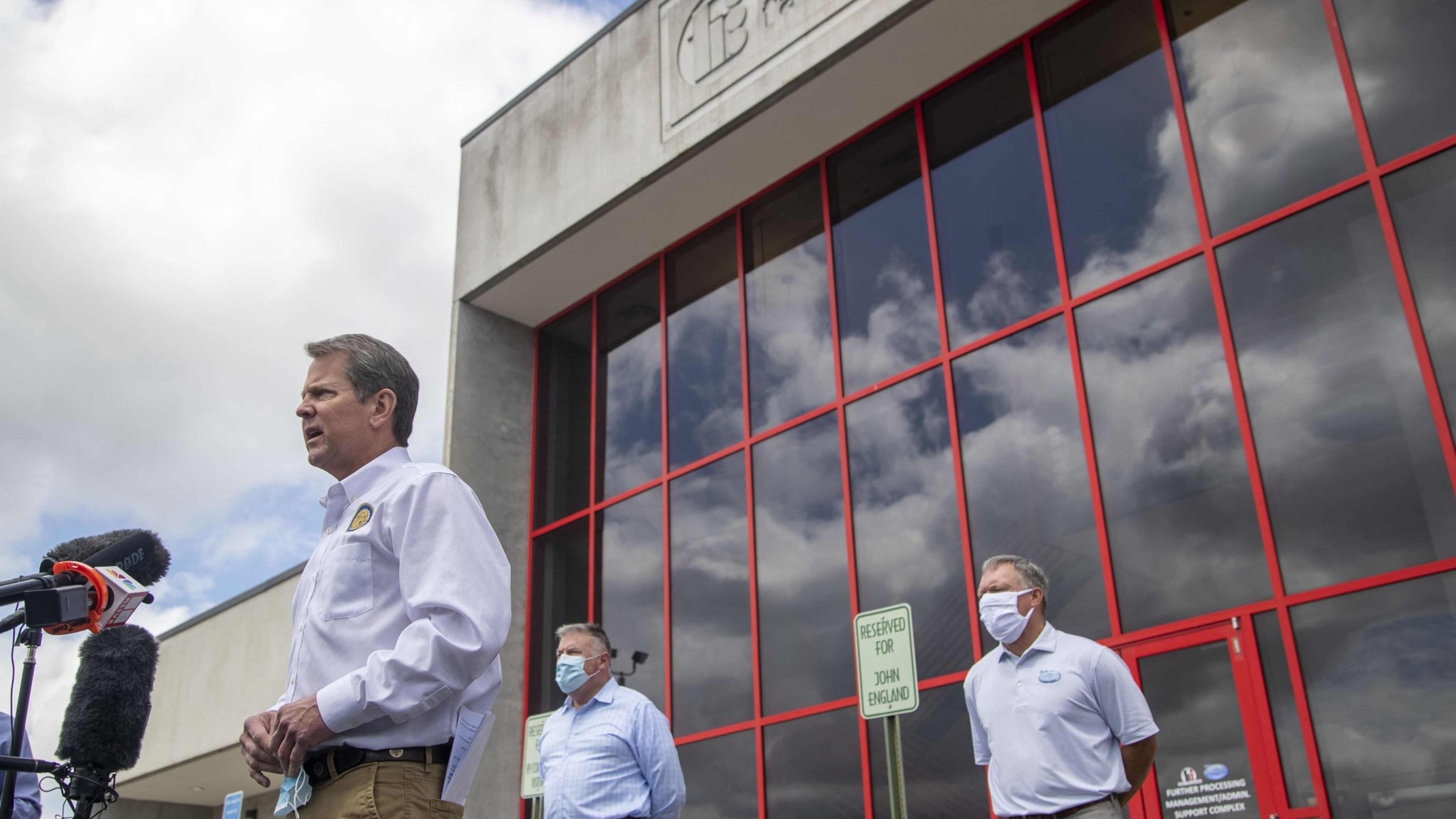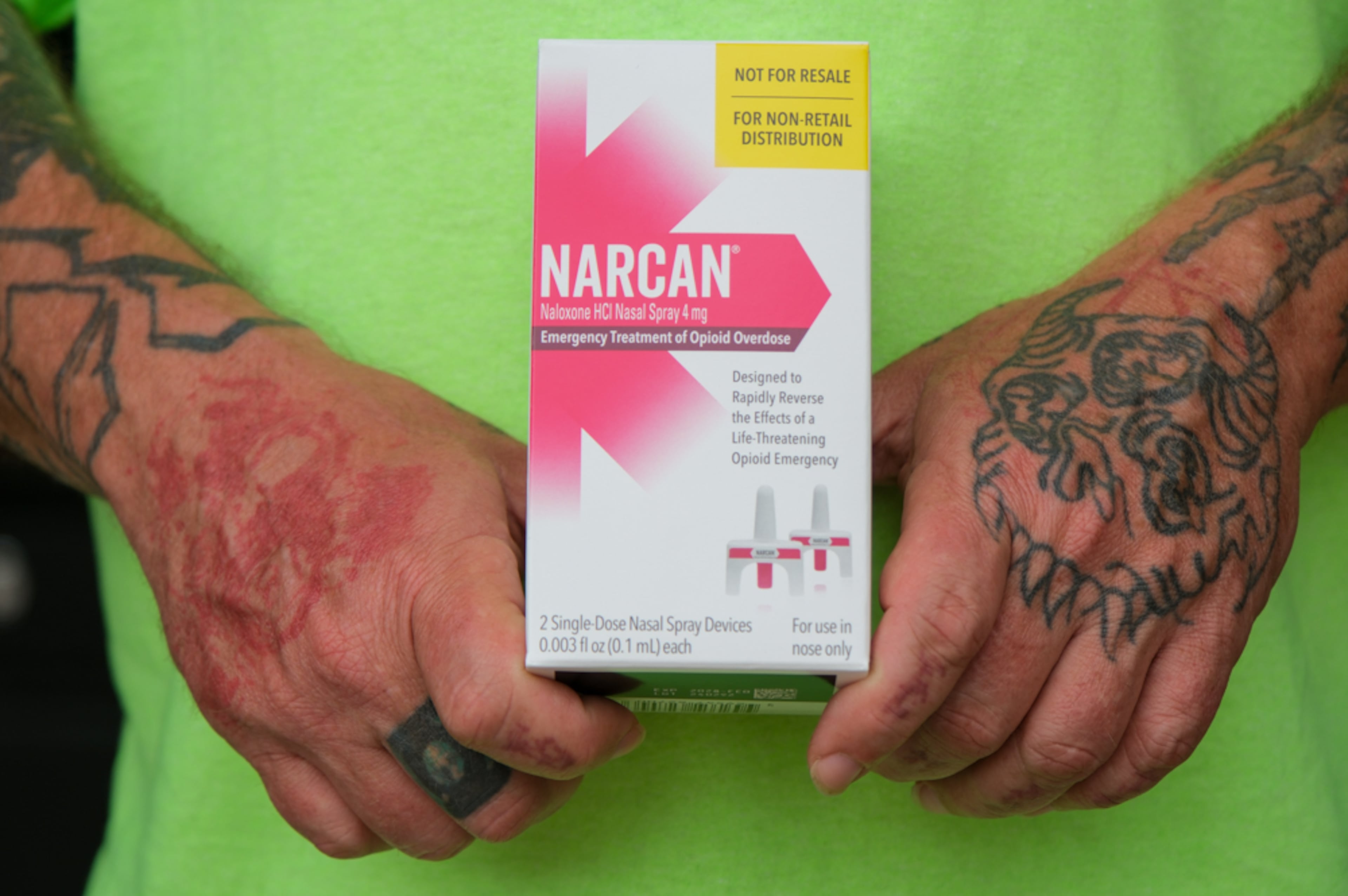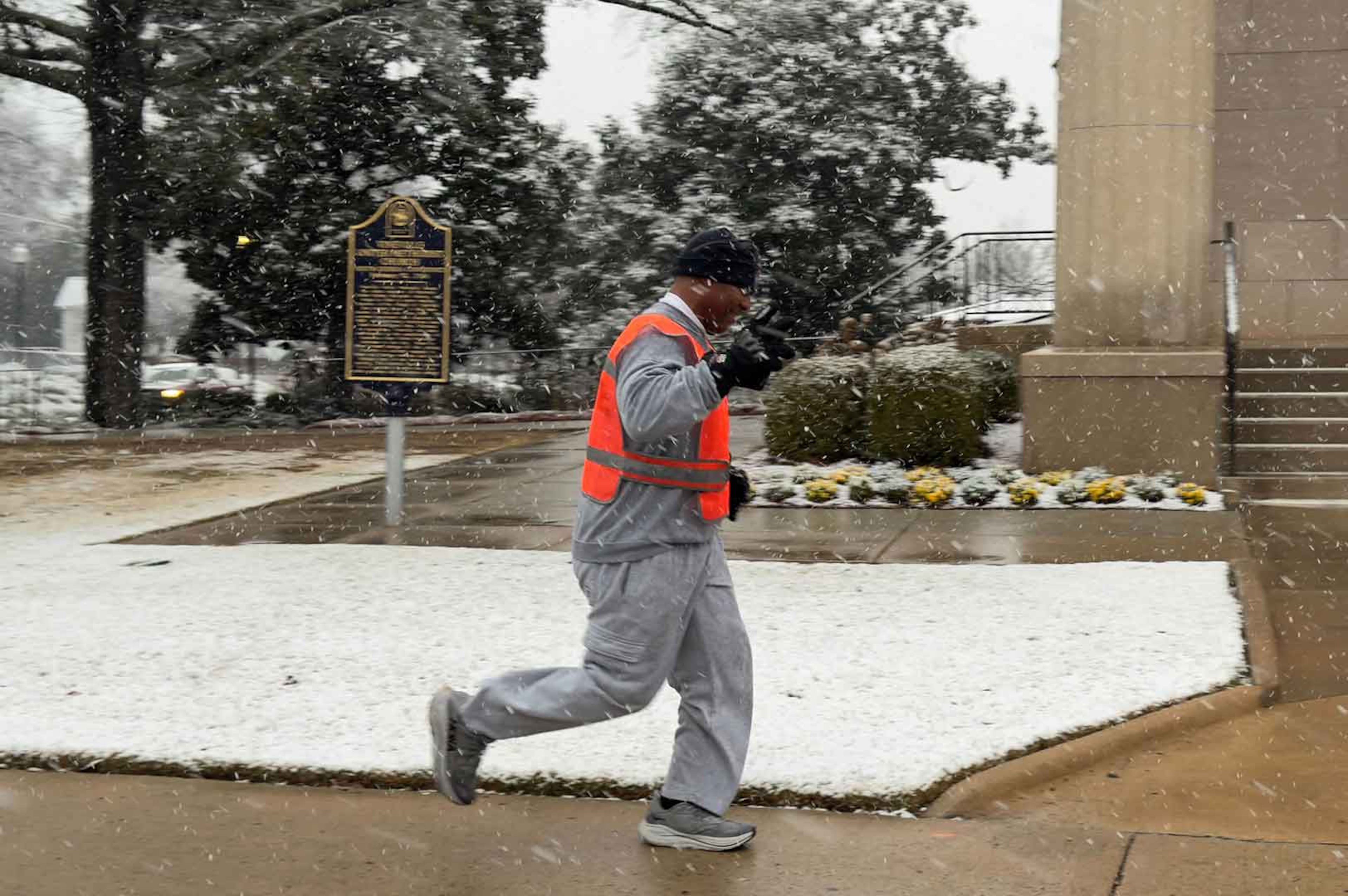Novel coronavirus sickening more of Georgia’s poultry workers

Dozens more workers in Georgia’s $41 billion poultry industry have tested positive for the novel coronavirus and a second worker has died from the disease since last month. State officials are rushing new resources to the area to try to prevent a larger outbreak.
Both in their 60s, two Hispanic men who worked at Fieldale Farms’ poultry plant in Cornelia have succumbed to COVID-19, said the Baldwin-based company’s president, Tom Hensley. Hensley did not disclose their identities, but he said one died in April while the other passed away this month.
Gov. Brian Kemp visited the area on Friday to highlight Georgia’s efforts to contain the pandemic, touring a Fieldale Farms facility, a nearby testing site and a medical pod under construction. Wearing a protective mask, Kemp touted the more than 300,000 tests now completed in Georgia and said he recently asked the White House for more supplies.
Hall County has emerged as an epicenter of the outbreak in Georgia, and state officials are concerned about the disproportionate number of coronavirus cases in the Hispanic community, particularly among those who work in the poultry industry.
Of Fieldale’s 4,700 workers, 200 have tested positive for the disease, up from 87 late last month, Hensley said Friday. Most of those who have contracted COVID-19 work in the company’s processing plants in Cornelia, Gainesville and Murrayville, Hensley said, adding that 124 workers have recovered and are back on the job.
Hensley attributed the increase in cases to additional testing for COVID-19 in North Georgia and highlighted the precautions his company is taking. It repeatedly disinfects plants and has issued smocks and masks to workers, who are kept separated at their workstations. While mourning the two workers who have died, Hensley said he is confident they did not contract COVID-19 at Fieldale’s Cornelia plant.
“I am proud of what we have done to protect our employees,” he said. “Anything the CDC recommends, we do.”
Last month, the Georgia Department of Public Health reported that 388 of the state's poultry workers had tested positive for the disease. They represent about 2% of the estimated 16,500 people employed at 14 chicken plants across the Georgia.
The state agency did not have updated figures Friday. But state officials said recent data from a hospital system in North Georgia suggested a large decrease in coronavirus cases among poultry workers over the last 12 days. Some 169 cases were reported among workers over the last two weeks in April, compared to 43 cases between May 1-12. Kemp’s aides said most of the infections were initially contracted in the community, not in poultry processing facilities.
‘Attack this on all fronts’
More than 4,900 confirmed COVID-19 cases and 20 deaths have been linked to the disease at 115 meat and poultry processing facilities across 19 states, according to a report published this month by the Atlanta-based Centers for Disease Control and Prevention. The study says tight production lines and decades-old practices make it difficult to maintain the recommended 6-foot distance in poultry and meat-processing plants.
“The pace and physical demands of processing work made adherence to face covering recommendations difficult, with some workers observed covering only their mouths and frequently readjusting their face coverings while working,” the authors wrote.
Poultry industry executives in the Peach State report 50% to 80% of their infected workers have recovered, said Mike Giles of the Georgia Poultry Federation. Companies have implemented staggered breaks, installed plexiglass dividers and increased hygiene guidelines that fast became industry standard, Giles said.
Emergency management officials recently offered Giles a trove of 45,000 protective masks that he said he eagerly accepted — not for workers, who were already provided them, but for their families. Within two days, they were dispensed to relatives of poultry workers across Gainesville.
“We’re focusing on educating employees to press them to do the things they’re doing at work also at home,” said Giles. “We’ve got to attack this on all fronts.”
After touring Fieldale’s plant in Gainesville on Friday, Kemp said he was impressed with how the company has responded to the pandemic but repeatedly said the outbreak extended beyond the industry.
“We realized early on — even though we had many poultry workers that were positive — it wasn’t necessarily a poultry plant issue,” he said. “It was an issue of those individuals going back home into the neighborhood and not understanding how they needed to adhere to best practices that created community-spread in a really fairly restricted community.”
Many refugees and Hispanic immigrants work in the poultry industry. Sarah Rich is a senior staff attorney for the Southern Poverty Law Center, which is monitoring the poultry industry in the South.
“When people are working closely together without adequate (personal protective equipment), the virus will spread,” she said. “And a chicken plant is the perfect environment for that to happen.”
Efforts to protect Georgia’s poultry workers have been “too little, too late,” said Vanesa Sarazua, the founder and executive director of Hispanic Alliance Georgia, a nonprofit based in Gainesville.
“These workers needed to be protected from the get-go,” she said. “I can’t believe that Gov. Kemp and anybody else locally couldn’t think of them first, since they are so critical to the food chain.”
Georgia’s poultry workers need health care, COVID-19 testing and “appropriate compensation for the risks they are taking,” said Jim Neal, chairman of the state’s Coalition of Refugee Service Agencies.
“If you are insisting on people going to work to help keep people fed,” he said, “and maybe the conditions of that work or the conditions surrounding them getting to that work put them at a higher risk of infection, then how about some hazard pay or bonus pay?”




